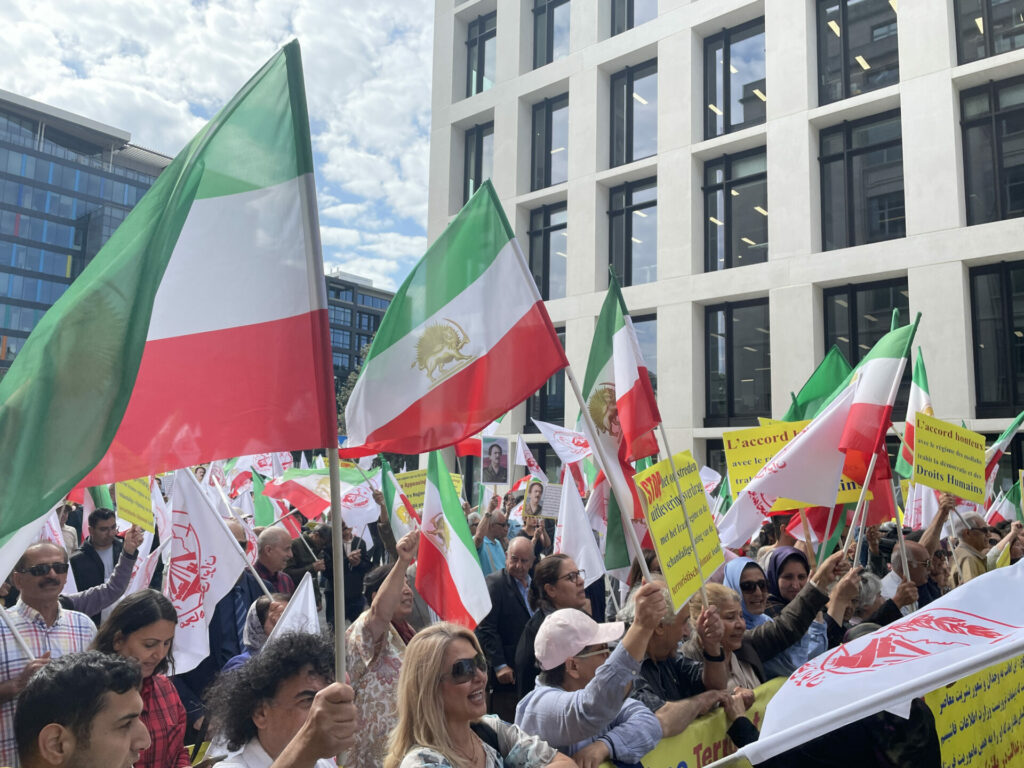The bill that would allow for the exchange of prisoners between Belgium and Iran was supposed to be voted on Tuesday afternoon but was postponed to Wednesday after it became apparent there was insufficient support for it from both the opposition and the majority.
MPs fear that the agreement will allow Iran to continue kidnapping innocent Europeans in order to free Iranian terrorists that have been detained abroad, as is the case with Assadollah Assadi.
A Belgian NGO employee, Olivier Vandecasteele, has been detained without charge, while VUB professor Ahmadreza Djalali is currently on death sentence in Iran.
Djalali and Vandecasteele
The treaty would reportedly concern Djalali, who has been sentenced to death, despite not having Belgian nationality, as well as Vandecasteele, who has been imprisoned in Iran since February this year.
“We are doing everything we can to help,” Van Quickenborne said. “That is our moral duty. It is the moral duty of a country to free innocent compatriots abroad and return them safely to family.”
‘Matter of human lives’
Justice Minister Vincent Van Quickenborne proposed three treaties on mutual legal assistance in criminal matters to the House Committee on Foreign Relations, with India and the United Arab Emirates (UAE), and an exchange of prisoners treaty with Iran.
The focus was on the Iran treaty, as it concerns specific individuals who would be exchanged between the two countries, which would grant freedom to an Iranian diplomat and terrorist in exchange for a VUB guest lecturer and a Belgian NGO employee.
Van Quickenborne calls it a “matter of human lives”. The treaty has been in the works for over five years, but with an increasing threat to Belgian security, it has been sped up. “In order to avert that increased threat, we followed the advice of the security services to bring about this treaty. Unfortunately, the threat has materialised in the detention and detention of a compatriot.”
‘Hostage diplomacy’
However, Van Quickenborne has faced a lot of criticism, both within the committee that decides on the treaty and outside of it. The Iranian community in Belgium took to the streets in Brussels this morning to protest against the exchange of prisoners and the return of Assadi to Iran.
Peter De Roover of N-VA is cautious, due to what is at stake: “The question is whether Belgium is a country that is cooperating in the fight against terrorism, or a country that can be blackmailed by terrorists.”
MPs fear that the treaty opens the door to blackmail by the Iranian regime, which could make it easier for them to retrieve convicted terrorists. “We fundamentally increase the risk that compatriots are used as currency, without having done anything wrong.”
Those fears were also shared by members of the majority parties. Committee member of the Greens, Wouter De Vriendt, asked whether this treaty would not lead to “a kind of hostage diplomacy”.
“Are we going to voluntarily release the handcuffs of a convicted terrorist and give it to Iran as a gift with a big bow around it?” De Vriendt wondered.

